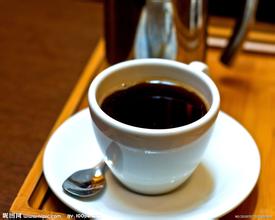Introduction to the characteristics of the manor producing area of Indonesian civet coffee with unique flavor
Lived in the Indonesian archipelago about 1.5 million to 35000 years ago, known as the Javanese ape-man. Homo sapiens entered the area about 45000 years ago.
A number of scattered feudal kingdoms were established in the 7th century AD. Recorded dynasties include the death of the Buddhist Sri Buddha (mid-7th century-1293), who was conquered by Manabache, and the Kingdom of New Keshari, which controlled the Strait of Malacca (1222-1292), which led to the Yuan-claw War. later, with the help of the Yuan army, the royal family established the most powerful feudal empire of Manabacher in Indonesian history (1293-1478).
In the 15th century, Portugal, Spain and Britain invaded successively. The Dutch invaded in 1596, the East India Company with government authority was established in 1602, and the colonial government was set up at the end of 1799.
Japan occupied Indonesia in 1942. After Japan surrendered in 1945, Indonesia broke out the August Revolution. On August 17, 1945, it declared its independence and established the Republic of Indonesia.
After its independence, Indonesia successively armed against the invasion of Britain and the Netherlands, and launched three wars of independence. After 1947, after many wars and consultations, the Netherlands and Indonesia signed the India-Netherlands Round Table Agreement in November 1949. According to this agreement, Indonesia established a federal republic on December 27 of the same year to participate in the Union of the Netherlands and India.
In August 1950, the Federal Assembly of Indonesia formally announced the establishment of the Republic of Indonesia through an interim constitution, and Indonesia became the 60th member of the United Nations in the same year. He seceded from the Union of the Netherlands and India in August 1954.
In 1967, Indonesia established the Association of Southeast Asian Nations (ASEAN) with Malaysia, the Philippines, Singapore and Thailand. ASEAN already has 10 members, and Indonesia is one of the most influential members. [6]
The Asian financial crisis in 1997 had a comprehensive impact on Indonesia and caused unrest.
In May 1998, President Suharto, who had been in power for 32 years, resigned and Vice President Habibi took over as president. In October 1999, the Indonesian people's Consultative Conference (CPPCC) elected Wahid as president and Megawati as vice president. On July 23, 2001, the special session of the people's Association removed President Wahid for malfeasance, Megawati took over as President and Hamzeh Haz served as Vice President.
In July 2004, Indonesia held its first direct presidential election. The former Minister for political Security Coordination Susilo Bambang Yudhoyono and the Minister for people's Welfare Coordination Muhammad Jusuf Kalla won two rounds of direct elections and were sworn in as President and Vice President Kopi Luwak, one of the most expensive coffee in the world. Indonesia grows a lot of coffee crops, including wild animals called civets, omnivores, pointed mouths and dark gray fur. The favorite food is fresh coffee beans, which are fermented and digested in the body and eventually excreted by cats. Feces are grains of coffee beans and become the most expensive feces in the world. Because the quantity is very rare, so the price is very expensive. Civets are found in Indo-China, India (northeast), Bangladesh, Bhutan, Sikkim, Nepal and Kashmir, but only Sumatran civets, or Indonesian civets, can produce Kopi Luwak.
Musk cat droppings
Musk cat droppings
After processing and baking, Kopi Luwak has become a luxury coffee drink and spread to luxury kingdoms around the world. Local coffee farmers, in pursuit of high profits, bring wild civets home to raise them so that they can produce more Kopi Luwak. However, the Kopi Luwak produced by breeding civets will be much worse in color and taste. Even so, the output of this kind of coffee is still very rare, and it is not affordable for all people who like coffee.
The coffee comes from the excrement of an animal called the civet (commonly known as the civet in Indonesia). Although it comes from smelly poop, it is full of sweetness and a burst of indescribable sweetness. This wild musk cat likes to eat fat and pulpy coffee fruits, but the hard hard nuts (raw beans) are indigestible and are excreted with feces. After being cleaned, they become Kopi Luwak coffee raw beans! So many people call it "cat shit" coffee. The Indonesians found that the coffee beans fermented by the civets' intestines and stomach are particularly thick and mellow, so they collect the civets' feces, sift out the coffee beans and brew them to drink. Because the yield is rare and the fermentation process is unique, the flavor is very different from that of ordinary coffee. Traditionally, coffee fruit is transparent.
Musk cat
Musk cat
After washing or sun treatment, the peel, pulp and sheep skin are removed, and finally the coffee beans are removed. However, Luwak uses the method of natural fermentation in the body to remove the coffee beans, so it has a special flavor.
It is said that coffee farmers in early Indonesia regarded civet cats that ate ripe coffee fruits as mortal enemies, but at some point someone began to think of picking coffee beans from the civet droppings to make coffee with unique flavor. Coffee experts everywhere have tried and were amazed. Since then, local farmers spend a lot of time collecting civet droppings in the forest every day during the coffee ripening season.

Important Notice :
前街咖啡 FrontStreet Coffee has moved to new addredd:
FrontStreet Coffee Address: 315,Donghua East Road,GuangZhou
Tel:020 38364473
- Prev

Introduction to the characteristics of Tanzania Fine Coffee Bean Flavor Manor with excellent Taste
Tanzania is rich in mineral resources. By 2014, the major minerals identified include gold, diamond, iron, nickel, phosphate, coal and various gemstones, ranking fifth in Africa in total. Tanzania also has huge natural gas reserves. According to official data released by Tanzania, Tanzania has proven natural gas reserves of 44 trillion cubic feet, and the total reserves are expected to be at least
- Next

The taste of Peruvian organic coffee is smooth. Introduction to the characteristics of fine coffee beans in the manor area.
The court is divided into four levels: the Supreme Court, the High Court, the Court of first instance and the Mediation Court. Judges at all levels are assessed and recommended by national or local committees of judges and appointed by the President. The President of the Supreme Court is elected from among the justices for a term of two years. The current President of the Supreme Court, Enrique Mendoza (Enrique MENDOZA). The State Procuratorate is an independent body, and the Procurator-General is elected by the Supreme Procuratorate.
Related
- Detailed explanation of Jadeite planting Land in Panamanian Jadeite Manor introduction to the grading system of Jadeite competitive bidding, Red bid, Green bid and Rose Summer
- Story of Coffee planting in Brenka region of Costa Rica Stonehenge Manor anaerobic heavy honey treatment of flavor mouth
- What's on the barrel of Blue Mountain Coffee beans?
- Can American coffee also pull flowers? How to use hot American style to pull out a good-looking pattern?
- Can you make a cold extract with coffee beans? What is the right proportion for cold-extracted coffee formula?
- Indonesian PWN Gold Mandrine Coffee Origin Features Flavor How to Chong? Mandolin coffee is American.
- A brief introduction to the flavor characteristics of Brazilian yellow bourbon coffee beans
- What is the effect of different water quality on the flavor of cold-extracted coffee? What kind of water is best for brewing coffee?
- Why do you think of Rose Summer whenever you mention Panamanian coffee?
- Introduction to the characteristics of authentic blue mountain coffee bean producing areas? What is the CIB Coffee Authority in Jamaica?

